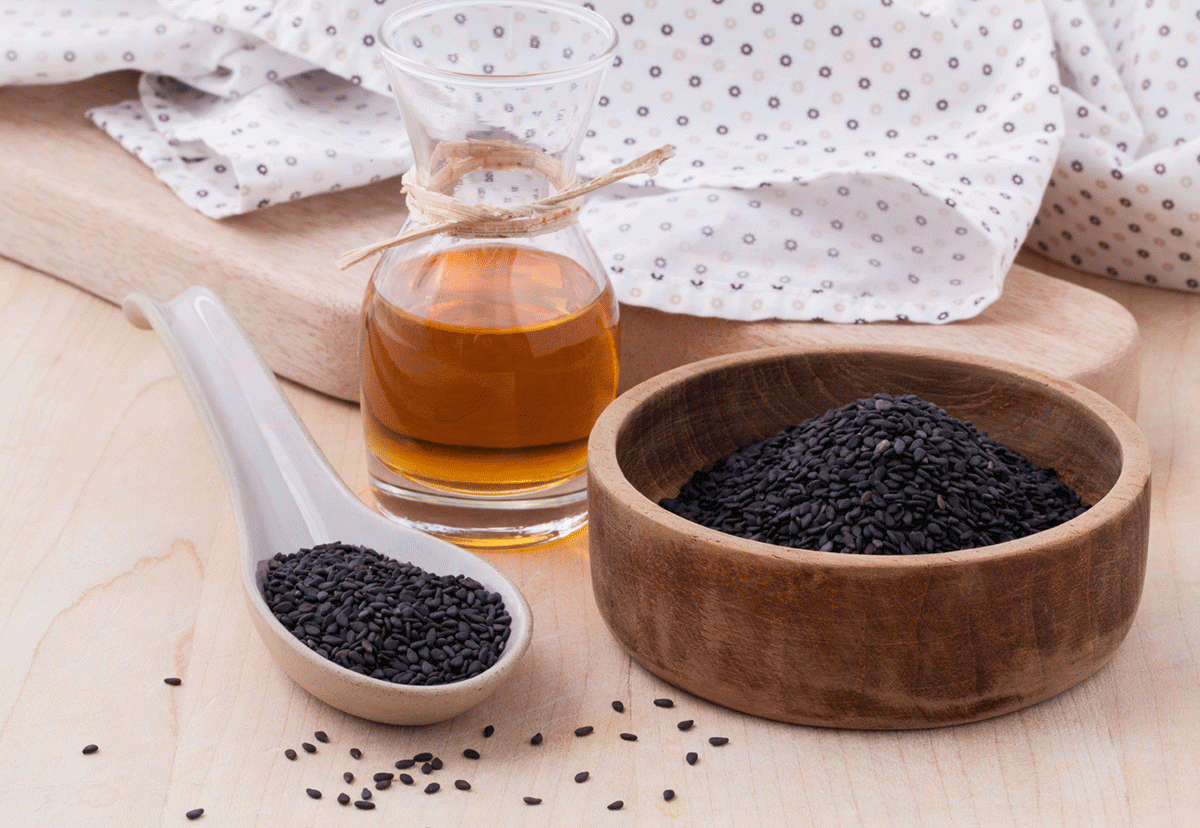Black seed oil is extracted from the seeds of caraway (or cumin), a plant scientifically called Nigella sativa. More commonly referred to as fennel flower, black cumin seed or black seed, it is a flowering plant used in folk or herbal medicine.
While the shrub looks unsuspecting, it produces fruits that have tiny black seeds which have been used in remedies for thousands of years. They’re also used in cooking to add flavor to pickles, curries, and breads. When eaten, the seeds have a bitter flavor that compares to that of oregano or cumin.
This oil has been studied for many years and many results have proved that there is wide range of black seed oil benefits. For example, it’s able to maintain beautiful and healthy hair and can relieve pain, lessen inflammation, reduce fevers and fight infections.
The oil is also thought to inhibit and prevent the metastasis and development of neoplastic cells which are associated with cancer. However, it is worth noting that the scientific evidence to this end is limited on its safety and efficacy, and in some people black seed may cause side effects.
According to a diet and health website called Diet Spotlight, people do use the seeds in cooking to add spice, and some also consume the black seed oil and powdered black seed for health benefits. The powdered black seed supplements are available in capsules, softgel capsules as well as oil extract in bottles.
What does black seed oil contain?
Black cumin seed oil is a good source of essential fatty acids and certain other nutrients. A research conducted in 2016 and published in the International Journal of Pharmaceutical Science and Research revealed many properties of the black seed oil that may be contributing to its ability to maintain healthy hair.
Essential oils
Black seed oil contains high levels of fatty acids which are known for their antioxidant properties. The leading types of the fatty acids in the oil are Eicosapentanaenoic acid, Oleic acid, Linoleic acid and Bienoic acid.
Topical application of black seeds oil is known to help in preventing premature aging of the hair and maintaining healthy hair. This is because the antioxidant fatty acids in black seeds oil reduce the effects of free radicals from the body and also from the environment.
Thymohydroquinone
This is one of the most powerful natural acetylcholinesterase inhibitors in the world. Acetylcholinesterases are chemicals that are used medicinally to treat a wide range of condition. This is because they are able to stop enzyme activities. These chemicals are used to treat conditions such as Parkinson’s disease, Schizophrenia, Postural Tachycardia Syndrome, Neurodegenerative conditions, Myasthenia gravis, Dementia, Glaucoma, Autism, Alzheimer’s disease, and Apathy.
Thymoquinone
This is an active ingredient in black seed oil. It is well known for its anticancer, anti-inflammatory and anti-oxidant properties that have been found to help with diabetes, encephalomyelitis, carcinogenesis and asthma. It is also known to aid in cellular antioxidant defense systems because it’s able to protect the liver from toxins
Nutritional value of black seed oil
Fixed Oils
The Memorial Sloan-Kettering Cancer Center notes that black seed contains fixed oils which consist of 84% percent fatty acids. A teaspoon of an ordinary black seed oil supplement provides 45 calories. This includes an anti-inflammatory omega-3 fatty acid, 22% alpha-linolenic acid, and 59% linoleic acid, an omega-6 fatty acid.
Nutrients
Blackcuminseeds contains proteins, amino acids, fixed oils, carbohydrates, alkaloids, volatile oils, fiber and saponin. The carbohydrates in black seed include the glucose, monosaccharides arabinose, xylose and rhamnose. The seed also contains iron, calcium, sodium and potassium.
Those who are looking to expanding their palates can incorporate black seeds into their dishes. It can be toasted and sprinkled over biscuits or bagels or on flatbreads like naan. It can also be added to stir-fries curries, and soups. Some people also grind them and then mix them with other seasonings like mustard.




